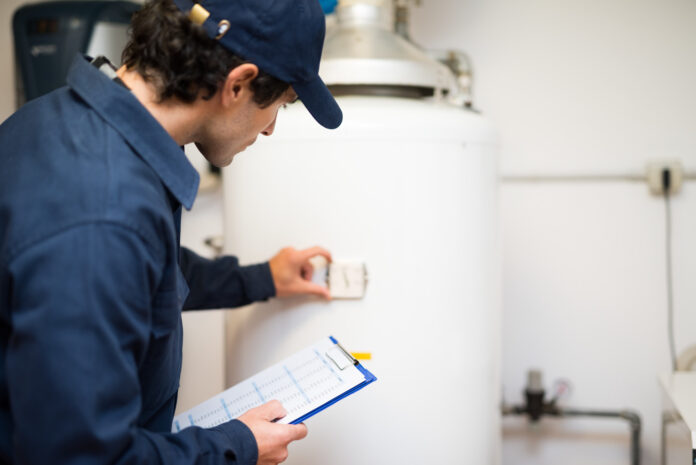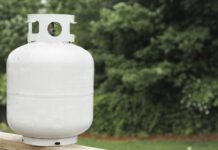Did you know that water heating makes up approximately 20% of your home’s energy usage? That’s quite a lot, considering most homes have several other appliances that consume energy. However, it’s a sacrifice most folks are willing to make, especially since hot water is more of a necessity than a luxury these days.
Most homes in the US get hot water through a water heater or a boiler. It’s not uncommon to find individuals who still have trouble differentiating between a water heater vs boiler. If you’re one of them, worry not; you’re in the right company.
Today, we’ll be highlighting the major difference between a water heater and a boiler. That way, you can make a well-informed decision when choosing between the two.
What Is a Boiler?
A boiler is a household contraption that provides temperature regulation and hot water for both commercial and residential buildings. This means it provides hot water that you can use in the shower, dishwasher, and washing machine. Some households even use boilers to generate electricity.
Boilers heat water in an instant and come in tanked and tankless varieties. Some boilers come with water cylinders for storing hot water that you can use later on.
Types of Boilers
All boilers break down into four major types. Let’s have a look at them briefly.
Combination boilers: Combination boilers are boilers that not only provide hot water but also heat the rest of the house. They take up little space because they don’t require cold water tanks and hot water storage cylinders
Conventional boilers: Unlike combination boilers, conventional boilers have both hot water cylinders and cold water tanks. This means they take up a lot more space than combination boilers. They’re ideal for bigger houses that may have multiple faucets open at the same time.
System boilers: System boilers have hot water storage cylinders but don’t have tanks for storing cold water. The boiler heats water that comes from the main water supply and stores it in the hot water storage cylinder.
The size of the hot water storage cylinder determines how much water you’ll have at any given time. If hot water runs out, you’ll have to wait for another heating cycle to get hot water.
Condensing boilers: Condensing boilers are the most energy-efficient types of boilers. These boilers keep all the heat that escapes through flues. Keep in mind that flues are pipes that convey toxic gasses from the heater outside the building.
It’s also worth noting that other types of boilers can be condensing boilers. In fact, turning your boiler into a condensing boiler can make it much more efficient.
That’s pretty much all there is to boilers. Let’s now move to water heaters.
What Is a Water Heater?
Water heaters, as the name implies, are systems that provide your home with hot water. You can use this hot water for your bathtub, dishwasher, and washing machine. However, unlike boilers, water heaters only provide hot water and don’t heat the rest of the building.
Types of Water Heaters
The two main types of water heaters are tankless and conventional water heaters. However, there are other types of water heaters that are less common. That said, here are the common types of water heaters you can find on the market today.
Tankless water heaters: Tankless water heaters are also known as on-demand water heaters. That’s because they heat water instantly on-demand. They also don’t have a tank to store hot water and take up very little space.
Conventional water heaters: Conventional water heaters require a storage tank that stores and heats the water. Coldwater enters the tank at the bottom and as the water heats up it rises to the top. After you use up all the hot water, the heater has to heat up cold water and the process starts all over again.
Hybrid/heat pump water heaters: These are less popular than the first two, but are much more energy-efficient. Heat pump water heaters draw heat from the outside and the ground to heat water. This makes them super-efficient, but unsuitable for cold regions.
Solar Water heaters: Solar water heaters are the most efficient of the bunch. As the name connotes, these water heaters use thermal energy to heat water collectors that then supply hot water to the building. They’re only suitable for hot regions that experience intense sunlight.
What Makes Water Heaters Different From Boilers?
Water heaters and boilers certainly have a lot in common. Both heat water for residential and commercial use and both are found inside buildings. So what makes the two water-heating mechanisms different?
Here are the major differences between boilers and water heaters.
Purpose
As mentioned above, water heaters only heat water for domestic use. Boilers, on the other hand, heat water and help regulate a building’s temperature. A water heater can’t keep your home warm, but a boiler can.
Heating Speed
Boilers heat water in a flash and you’ll have hot water in no time. However, water heaters, except tankless water heaters, take some time to get the water hot.
Water Storage
All water heaters, except tankless water heaters, store hot water until you need it. On the other hand, only system boilers store hot water for use. Conventional boilers heat water as it passes through the pipes.
Boiler Vs Water Heater Efficiency
You can find super-efficient water heaters like heat pumps or solar water heaters. However, it’s hard to find any type of boiler as efficient as these two. If efficiency is what you’re looking for, then a solar or heat pump water heater is your best bet.
For high-quality and efficient heaters, you can check out https://www.qbicheating.co.uk/water-heaters. Explore their range of water heaters and pick one that fits your fancy.
Water Heater vs Boiler: The Verdict
When it comes to a water heater vs boiler, the best one depends on your specific needs. Before taking your pick, consider factors like space, efficiency, and hot water demand. You could always opt for a boiler and hot water heater combo if you can’t pick between the two.
For more informative content, check out the other posts on the site.










